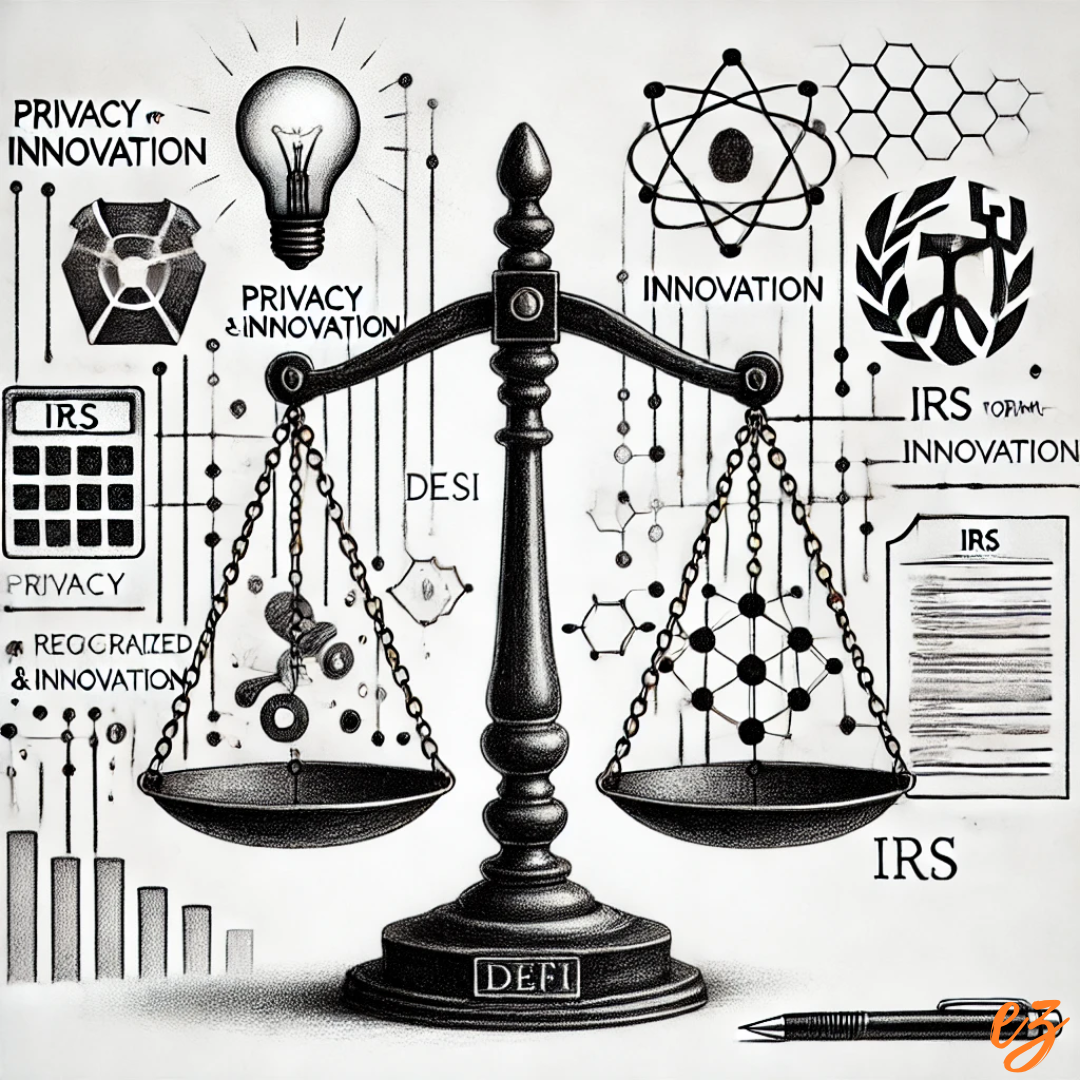Sign up
Sign in
Sign up
Sign in
Follow publication
empowerment through data, knowledge, and expertise. Join DDI community at https://join.datadriveninvestor.com
Follow publication
—
Listen
Share
Read how the IRS broker rule affects DeFi protocols, non-custodial software providers, and privacy rights. Learn why innovation and decentralization are at risk.
The IRS and Department of the Treasury have finalized regulations requiring decentralized finance (DeFi) protocols that facilitate digital asset sales to comply with tax reporting obligations. Set to take effect on January 1, 2027, these rules align DeFi brokers with centralized exchanges by mandating the reporting of user transaction details and the issuance of a new tax document, Form 1099-DA. These regulations stem from the Infrastructure Investment and Jobs Act (IIJA) of 2021 and aim to bridge gaps in tax compliance in the evolving digital asset space.
The new regulations broaden the definition of brokers to include not only custodial intermediaries like centralized exchanges but also DeFi participants that facilitate digital asset transactions. This includes platforms or entities that provide infrastructure for peer-to-peer transactions, even if they do not custody user assets. The rules introduce vague definitions, such as “effectuating services,” which could potentially encompass non-custodial developers who design wallet or trading software.
Example: A decentralized exchange (DEX) like Uniswap, which facilitates token swaps through smart contracts, might be considered a broker under these rules if it is deemed “in a position to know” user identities or transaction details, regardless of its non-custodial nature.
The regulation mandates DeFi platforms classified as brokers to issue a new tax document, Form 1099-DA, summarizing users’ taxable transactions. This aligns with the IRS’s reporting requirements for centralized exchanges, such as Form 1099-B for stock trades. The goal is to standardize tax reporting across digital asset platforms, providing users and the IRS with clear transaction records.
Example: A user who earns capital gains by swapping Bitcoin for Ethereum on a DeFi platform would receive a Form 1099-DA detailing the transaction, similar to the documentation provided for stock sales through traditional brokers.
DeFi brokers are required to report gross proceeds from digital asset transactions, enabling the IRS to assess potential tax liabilities. This applies to various transaction types, including token swaps and sales, and extends beyond traditional trading to encompass any digital asset exchange involving a taxable event.
Example: If a user exchanges USDT for ETH on a DeFi platform, the platform must report the gross value of the ETH received, even if the user immediately reinvests those proceeds.
Despite claims to the contrary, the final rule includes broad definitions that could obligate non-custodial participants, such as wallet developers and infrastructure providers, to comply with reporting requirements. The regulation introduces a vague “position to know” test, which implies that if a developer’s software could theoretically collect user data, they may be classified as a broker. This ambiguity has raised significant concerns about the chilling effect on privacy-preserving, immutable tools.
Example: A developer who creates open-source wallet software might fall under the broker classification if their software could be modified to collect and report user identities, even if the developer does not have access to such data by design.
While the regulations exclude validators and purely technical participants who only confirm blockchain transactions, the language remains sufficiently broad to leave room for interpretation. This lack of clarity could still impose obligations on non-custodial participants if they are deemed capable of collecting or accessing user data.
Example: Validators on the Ethereum network are unlikely to fall under the broker definition, as they do not have access to user identities. However, the rules’ vague language leaves open the possibility of broader interpretations in the future.
The IRS’s decision to extend broker obligations to non-custodial software providers raises significant concerns about privacy, innovation, and the principles of decentralized finance. While tax compliance is necessary for a fair financial system, it must not come at the cost of constitutional rights or technological progress.
Requiring non-custodial entities, like wallet developers, to implement KYC and reporting is both impractical and overreaching. These entities lack the means to collect user data, and mandating such surveillance is akin to requiring a mapmaker to track the journeys of everyone who uses their maps — a fundamentally unreasonable demand.
This rule infringes on First Amendment rights by compelling developers to build surveillance tools and violates Fourth Amendment protections through warrantless data collection. It also contradicts Congress’s intent in the Infrastructure Investment and Jobs Act, which focused on custodial intermediaries, not developers or infrastructure providers.
A better approach would limit these obligations to custodial intermediaries — entities that manage user assets and are equipped to comply. Non-custodial developers should be encouraged to create privacy-preserving tools without fear of penalties. Policymakers must balance oversight with protecting privacy and fostering innovation, ensuring tax compliance without undermining the growth of decentralized technologies.
www.axios.com
medium.com
Discover how blockchain is transforming industries on the Blockchain Insights Hub. Follow me on Twitter for real-time updates on the intersection of blockchain and cybersecurity. Subscribe now to get my exclusive report on the top blockchain security threats of 2024. Dive deeper into my blockchain insights on Mirror.xyz.
Visit us at DataDrivenInvestor.com
Subscribe to DDIntel here.
Join our creator ecosystem here.
DDI Official Telegram Channel: https://t.me/+tafUp6ecEys4YjQ1
Follow us on LinkedIn, Twitter, YouTube, and Facebook.
—
—
empowerment through data, knowledge, and expertise. Join DDI community at https://join.datadriveninvestor.com
Writing about cyber threat intelligence, OSINT, financial crime, and blockchain forensics. Follow me on Twitter for the latest insights.
Help
Status
About
Careers
Press
Blog
Privacy
Rules
Terms
Text to speech
IRS Broker Rule Finalized: Impact on DeFi, Privacy, and Non-Custodial Innovation – DataDrivenInvestor





